9 start with G start with G
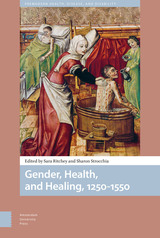
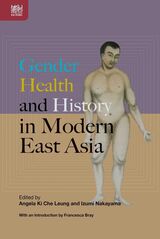

This revised volume, originally published in Sweden, consolidates multidisciplinary research on gender inequalities in health. Reviewing previous research and presenting new empirical data from Sweden and elsewhere, the authors examine basic concepts, possible hypotheses, explanatory models, and policy solutions for the biological and social causes of the differences in health between men and women. Along with discussions of reproductive, mental, and occupational health, this book reviews critical issues such as violence and asks important questions, such as why men are dying younger.
The volume also analyzes how Sweden’s labor market, social structure, and health care system have contributed to these gender differences, and what effects these factors will have in the future. Sweden’s experience as a pioneer in health achievement and gender equality provides valuable insights into the health-related challenges remaining for the rest of the world.
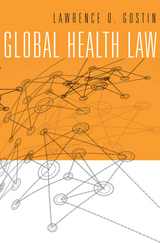
The international community has made great progress in improving global health. But staggering health inequalities between rich and poor still remain, raising fundamental questions of social justice. In a book that systematically defines the burgeoning field of global health law, Lawrence Gostin drives home the need for effective global governance for health and offers a blueprint for reform, based on the principle that the opportunity to live a healthy life is a basic human right.
Gostin shows how critical it is for institutions and international agreements to focus not only on illness but also on the essential conditions that enable people to stay healthy throughout their lifespan: nutrition, clean water, mosquito control, and tobacco reduction. Policies that shape agriculture, trade, and the environment have long-term impacts on health, and Gostin proposes major reforms of global health institutions and governments to ensure better coordination, more transparency, and accountability. He illustrates the power of global health law with case studies on AIDS, influenza, tobacco, and health worker migration.
Today's pressing health needs worldwide are a problem not only for the medical profession but also for all concerned citizens. Designed with the beginning student, advanced researcher, and informed public in mind, Global Health Law will be a foundational resource for teaching, advocacy, and public discourse in global health.
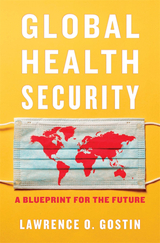
With lessons learned from COVID-19, a world-leading expert on pandemic preparedness proposes a pragmatic plan urgently needed for the future of global health security.
The COVID-19 pandemic revealed how unprepared the world was for such an event, as even the most sophisticated public health systems failed to cope. We must have far more investment and preparation, along with better detection, warning, and coordination within and across national boundaries. In an age of global pandemics, no country can achieve public health on its own. Health security planning is paramount.
Lawrence O. Gostin has spent three decades designing resilient health systems and governance that take account of our interconnected world, as a close advisor to the Centers for Disease Control and Prevention (CDC), the World Health Organization (WHO), and many public health agencies globally. Global Health Security addresses the borderless dangers societies now face, including infectious diseases and bioterrorism, and examines the political, environmental, and socioeconomic factors exacerbating these threats. Weak governance, ineffective health systems, and lack of preparedness are key sources of risk, and all of them came to the fore during the COVID-19 crisis, even—sometimes especially—in wealthy countries like the United States. But the solution is not just to improve national health policy, which can only react after the threat is realized at home. Gostin further proposes robust international institutions, tools for effective cross-border risk communication and action, and research programs targeting the global dimension of public health.
Creating these systems will require not only sustained financial investment but also shared values of cooperation, collective responsibility, and equity. Gostin has witnessed the triumph of these values in national and international forums and has a clear plan to tackle the challenges ahead. Global Health Security therefore offers pragmatic solutions that address the failures of the recent past, while looking toward what we know is coming. Nothing could be more important to the future health of nations.
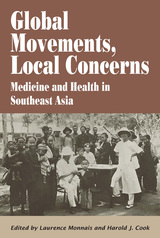
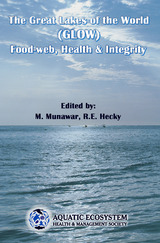

Most discussions of health care center on medical advances, cost, and the roles of insurers and government agencies. With The Grey Zone of Health and Illness, Alan Blum offers a new perspective, outlining a highly nuanced theoretical approach to health and health care alike. Drawing on a range of thinkers, Blum explains how our current understanding of health care tends to posit it as a sort of state of permanent emergency, like the nuclear standoff of the Cold War. To move beyond that, he argues, will require a complete rethinking of health and sickness, self-governance and negligence. A heady, cutting-edge intervention in a critical area of society, The Grey Zone of Health and Illness will have wide ramifications in the academy and beyond.

READERS
Browse our collection.
PUBLISHERS
See BiblioVault's publisher services.
STUDENT SERVICES
Files for college accessibility offices.
UChicago Accessibility Resources
home | accessibility | search | about | contact us
BiblioVault ® 2001 - 2024
The University of Chicago Press









